Another day, another maestro letter
mainSeveral UK music directors led by Sir Mark Elder and Vasily Petrenko have written to the Times warning that Britain’s orchestras need a huge cash injection to stay afloat. Elder had already written along these lines to the Guardian.
Today’s letter says: ‘It is becoming more and more apparent that orchestras, opera companies and other musical institutions in the UK, a truly world-leading country in all forms of culture, are in grave danger of being lost for ever, if urgent action is not taken.’
Other signatories include Vladimir Jurowski (LPO), Mirga Grazinyte-Tyla (CBSO), Martyn Brabbins (English National Opera), Daniele Rustioni (Ulster), Esa-Pekka Salonen (ex-Philharmonia), Lars Vogt of the Northern Sinfonia and Kirill Karabits who is falsely registered in Birmingham, rather than Bournemouth.
Nothing has appeared in the Daily Mail, so nothing’s likely to be noticed by the present Government.
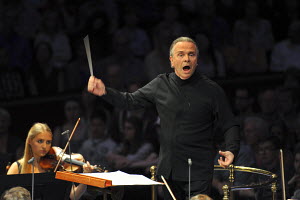

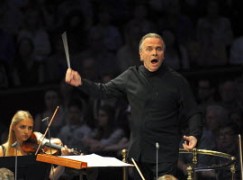

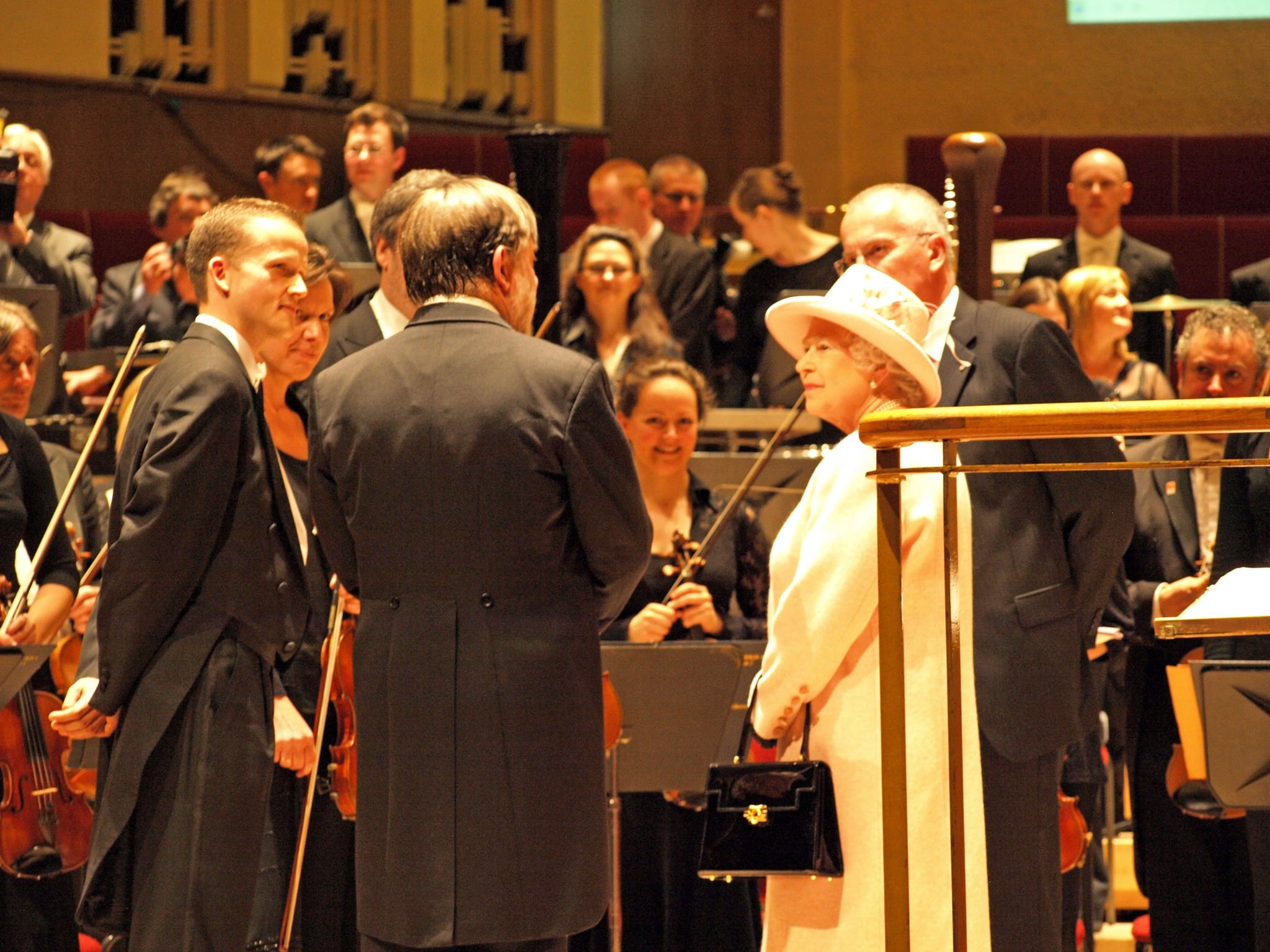
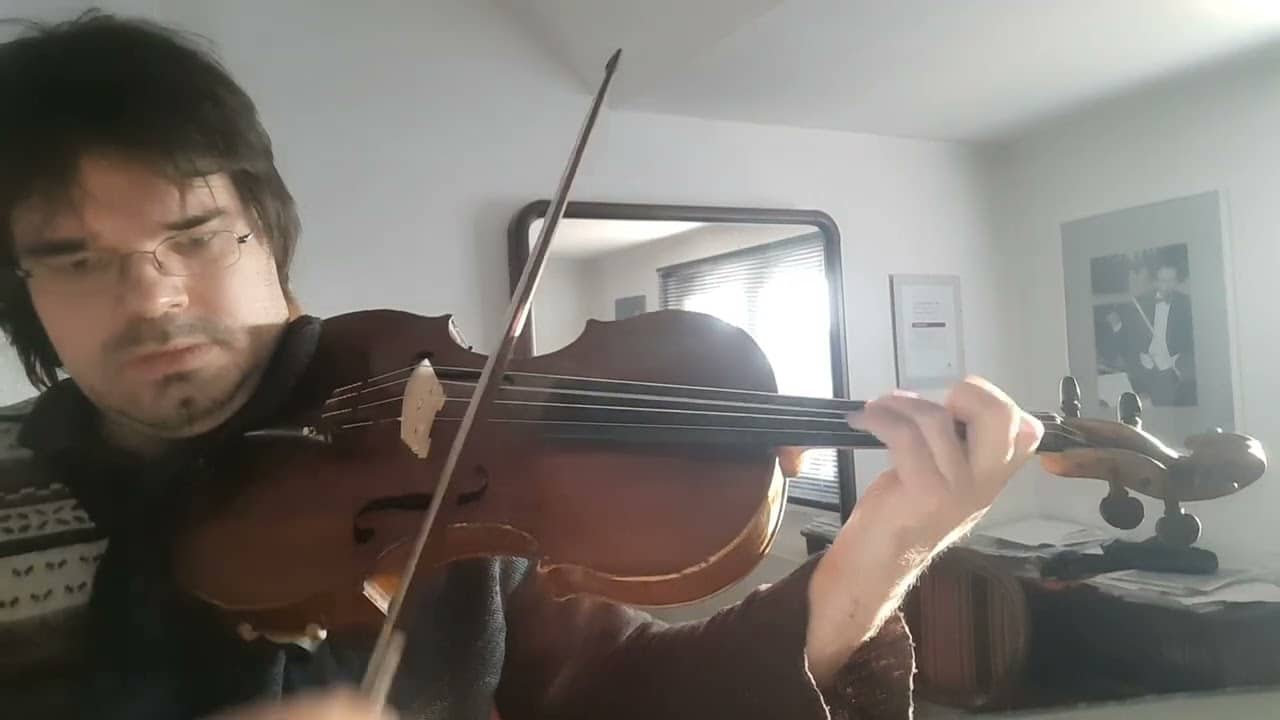
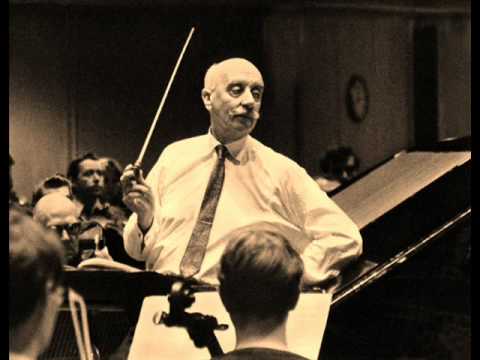
Well, Football’s back and it’s Royal Ascot sans hats this week, and I’m sure the Bookies continue to rake it in and the media are more or less on side. So, job done as far as the Department of Culture, Media and Sport is concerned.
And who needs a physical Symphony Concert or Opera or a Play when we are all now snugly tucked up in our care homes or our living rooms watching free stuff on line whilst the Grim Reaper bides his time as he scythes through the increasingly vulnerable audience, ably assisted by HMRG?
You need to think that not everyone has access to live streaming and the comment about the grim reaper is disgusting – some of us are fitter that the younger element of this society
it is a shame kirill karabits could not remember which orchestra he conducts
Karabits always acts ‘per se’ no surprise he forgets his orchestra
Perhaps if they try contacting the Daily Mail rather than the snooty papers they might get some cash. Or join the freemasons ? Or ask the Ontario Teachers’ Pension Plan Board who own Camelot, The National Lottery, for some free dosh. We’d all like some free dosh wouldn’t we? like a free home, free food, a nice car rather than having to kill ourselves doing it.
I have been made redundant twice the companies went bankrupt i came out
With one weeks salary. It took me a long time to find work. The unemployment
I received was very little. I had to take a loan which i paid back once i found
A job. The orchestras want somebody to cover the salaries very nice for them
‘Something terrible happened in my life, therefore I’m happy to see something terrible happen to tens of hundreds of other people, and their families’
I have had life changing injuries. I was hit by a car. this is worse than being
Unemployed. When one is unemployed eventually one finds work.
I cannot regain my health even if Iam entitled to compensation.
Could always ask the Vatican, they’ve got billions swimming around in bank accounts, while pouncing about in robes and jewels.
A message from the 16th century, so a bit on the late side.
Rob – this isn’t the Daily Mail, but you might try taking your gratuitously offensive, off-topic prejudice there – it’s right up their street.
It might notice if it appears in the Telegraph. Molesworth — I mean Boris — has an article splayed across the front page this morning.
Option 1 bailout a double glazing firm that pays corporation tax, employers national insurance contributions, and employs 500 people, all of whom are on PAYE.
Option 2 bailout an orchestra that 60% of its funding from the state, pays no corporation tax and because it’s staff are are freelancers, pays no national insurance or income tax.
There are finite resources and classical music doesn’t pay it’s own way at the best of times. Saving 500 jobs in the West Midlands is more important economically and politically than bailing out a London orchestra. It’s doesn’t matter what ever government is power the economics and politics means impassioned letters in any paper don’t count.
False dichotomy.
Option 3 — clamp down on the big multinational corporations’ creative accounting tricks that enable them to pay miniscule levels of tax relative to their massive UK profits. Some of these same corporations are doing *very* well out of the current situation (e.g.: Amazon).
And by the way, income tax is paid by individuals (not employers/organisations), whether freelance or employed.
Would that be the companies like Jaguar Land rover that have just posted a £428 million loss. How about Rolls Royce that is making 5000 people redundant. There is no magic money tree, the money that is available will be spent on tax producing parts of the economy and essential public services. If you took every single penny in profit from Amazon’s world wide operations it wouldn’t cover the cost of the UK’s furlough scheme. You would be over £5 billion short.
In addition you wrong, freelancers can pay themselves by dividends and therefore not pay income tax and national insurance. That is the reason why they are not eligible for government support. Only those that are self employed that pay income tax and national insurance are eligible for loans.
https://www.itcontracting.com/limited-company-dividends/
Funny that, for a man so seemingly obsessed with numbers, you get them so wrong.
No orchestra gets 60% subsidy from the government, sadly we do not have the state-support offered to German bands (who do get that amount). Average is 30% from ACE but in reality most get far less and, importantly, it has been this process, of weening off state funding, that has led to the crippling situation today.
Our arts organisations have become very good at finding alternate means of income. Those that own their own buildings run restaurants, bars, hire out their spaces for conferences etc. It is that proportion of their income, along with ticket sales, that has become so vital that our organisations now can’t survive without.
If, as you seem to think, our arts organisations were on 60% subsidy, well then we’d have no trouble weathering this storm at all.
I’m not sure there are any orchestras in the UK that receive 60% public funding. Average for ABO members is about 30%
Absolutely agree Stephen. It is time to expunge this kind of ignorance once and for all.
https://amp.theguardian.com/culture/2015/jul/13/publicly-funded-arts-bolster-the-uk-economy-study-finds
Wrong again – Option2. Salaried staff employed with an orchestra, opera company, festival et al DO pay income tax. The musicians are freelance but pay their tax under self-employed rules. VAT is generated for commissioned work i.e. fee received plus VAT at 20%. Non-UK/EU resident artists will come under the simplified tax withholding system that requires each orchestra/opera company, festival etc to declare and pay tax on the fees payable. That’s for starters.
Letters to papers are relevant because WE are relevant, part of the community not an optional extra. Our voices need to be heard other than on the concert platform, which is a no-go area for us at the moment until social distancing rules make it possible. Saving jobs in the Midlands is as important as saving jobs in orchestras, opera companies, festivals et al. We are not a drain on the country’s resources either.
It does take nerve to write such a letter begging money
for their entertainments while the rest of the world is
trying to figure how to put food on the table during these
terrible times. Elder, Petrenko,Jurowski and the like
should be ashamed of themselves . For those that
believe the above are important to the survival of the human race pay out of pocket for your entertainments.
What arrogance!!!!!!!!!
Hi Jade, perhaps you don’t realise that it’s an industry made of people, just like yourself. How do the musicians get the food on their plate, these days? Have you thought about that? Are musicians lesser human beings? These conductors have concerns about their musicians too, not just about humanity etc. I don’t find it arrogant at all, in fact on the contrary I find honorable the fact that they used their own name to represent a much much bigger category of people that otherwise would be unheard and wouldn’t survive this crisis. And by the way, it’s sad that you see orchestras only as other people’s entertainment, and not your own. Perhaps it would be good to first become more sensitive about the topic, and then to comment.
At last called an industry not an art form!!!!!!
Musicians are human , no different than your every day butcher,house cleaner,construction worker, but musicians love to when they can -pretend to a higher calling,it’s part of the schtick.
They are entertainers plan and simple and when times are tough they are among the first to go,
also the first to bemoan their plight while
others are out desperately looking for any job
to put food on the table too desperate to worry
about some musical entertainer. Conductors
are not about humanity ,they represent nothing they are about preserving their jobs- without the players they are nothing.Perhaps it would be good to let musicians know that they are only entertainers and while lovable at times ,there comes a moment when more important things demand attention over a chosen life style.
I actually really enjoyed reading this stream of consciousness. In my other life as an author I often used to ‘free write’ whilst hashing out ideas. Haven’t done it in a while and you’ve inspired me to pick it up again. Thanks!
However, as a conductor and former orchestral musician, I must sadly shatter your delusion. Us musicians, despite our efforts, are not yet enlightened enough to shed our corporeal needs. Alas, we also must put food on our tables; yet our efforts have been hampered by the combine-harvester-sized hole in the Chancellor’s SEISS, through which most of us have fallen.
I assure you, we have no superiority complex over butchers, bakers or candlestick makers. We simply are doing our best to ensure that our industry continues to allow us to provide for our families and for our audiences who, after all, spent £51,205,643 on tickets to classical music concerts over two years. Clearly at least THEY think we have something to offer society. As for you, I again offer you my thanks, perhaps you will have inspired my literary magnum opus – though I suppose third-rate Virginia Wolf pastiche is a bit old hat now.
What ignorance!!!!!!!
J needs to learn something about economics
And he needs to learn something about the value of art and highly accomplished artists to a society and culture. What an ignorant point of view.
Jay – if you don’t care about live music, in fact consider those who are trying to get its voice heard “arrogant”, what are you doing on this blog? Classic trolling perhaps? In which case I guess I should have ignored you.
Well, despite NL’s very stupid last paragraph, everything they have said is at least 90% correct . If one looks back over the history of publicly performed music, now going back some 300 years , the bulk of it has been underwritten either by very wealthy private backers or more commonly ( except perhaps in the USA ) by state bodies . Even in WW2 live music continued, and with it the revenue streams from audiences. The distinction in this crisis is that those revenues have disappeared, and it is this which causes the acute funding crisis that is now upon us
There’s another distinction between now and WW2: they didn’t have the wealth of options to listen to music in recorded form we do today. Just heavy 78s that were expensive. I can stay home and listen to any cd in my collection, watch the Berlin Philharmonic on their Roku channel, or stream almost anything I want on Primephonic. If WW2 era fans had those options, would live concerts have been so important?
I take your point, but if most orchestras and opera companies had gone bust during WW2, then where would Peter Grimes have ever received a premiere performance following the war? CDs and other records of past performances would ensure the death of art music by precluding anything new that required performing forces of more than half a dozen.
Yes, live concerts would still have been important, even if there had been 33 rpm records during the Forties, because a live concert or theatre play, is a shared community event. It’s about realizing we’re in this world together, and music or drama gives meaning to the way we look at or listen to the world.
To a lot of people, type armchair general, wielding a remote control, this feeling has gotten lost, which is why the world has become such a nasty place, unfortunately.
Actually they were, because of the human contact they represented, the communal belief in the human spirit — the greatest examples being the Proms concerts at the Royal Albert Hall, and the Dame Myra Hess recitals at the National Gallery. Also remember that, in different ways, people had almost as many options to hear music at home. The vast majority of people knew how to play the piano back then, and most people owned a piano the way most people now own a desktop computer; keyboard reductions of famous orchestral music were to be found in many a piano bench. There was a vigorous presence of classical music even on radio stations not exclusively devoted to it, and domestic music-making for countless numbers of people was quite simply a part of everyday life.
I have such great music at home even before lockdown i was reluctant
To go on vacation. In ww11 people never had such audio equipment at
Home.
With the limited readership of the Guardian these days I would have thought that Mark Elder would have directed his letter elsewhere to get it noticed.
This particular letter is written to The Times. The one the other day was to The Guardian.
Even though I’m an American, I’ve always been partial to The Telegraph.
Salonen has still 1 more year left at the Philharmonia. These conductors in their letter are doing more to support the arts at this time than you are with your articles suggesting the Southbank Centre should just close for good.
Can you effing read, Ian? I advocate privatisation for the SB, not closure.
A lovely, dignified response.
Orchestras haven’t paid their way for years. The ‘save our culture’ argument doesn’t stand either, how many orchestras actually play British music? Is the creativity of white men from the 1800s British culture anymore? I don’t think so.
Music should pay its way and if there isn’t an audience for it then it won’t be missed. If Manchester United don’t fill the stadium or get in corporate revenue then they’d go into administration, what is the difference in orchestras and sports? They’re both entertainment – it’s just than one can sustain itself and one has never been able to.
Also, I wonder how much Sir Mark and these other conductors are paid? I doubt their monstrous salaries/fees are doing the bank accounts of these orchestras much good…
The difference between orchestras and sports is the difference between not-for-profit and for-profit enterprises. One needs outside funding to sustain it and the other does not.
The difference between orchestras and sports is a substantial difference in skill levels and the time taken to acquire them.
Nobody knows what orchestras are worth until they are gone
Only to those that think orchestras have some value ; there are millions upon million who don’t
care a fig about the so called western classical orchestra and millions upon millions
who don’t know of Beethoven or Chopin and yet
seemingly have a happy life while unaware of these western musical entertainers .
If the orchestra is your thing then support it.dig down into your pockets for the monies needed
to keep this entertainment going, ask friends
to help support it, do all you can but do not expect others to pay for your entertainment
with their tax money.
Airports, airlines and restaurant owners are all seeking/having meetings with HMG to argue the case why they should be bailed out with taxpayers’ money (hint: they are arranging meetings, not just writing to newspapers). Many industries are in financial trouble as a result of lockdown. Yes, those industries that require a full theatre or auditorium to make money are in more trouble than others (and yes, there’s the rub). But the uncomfortable reality is that there are many demands on HMG’s money and that money is limited.
I’m willing to wager that a larger percentage of the UK’s taxpayers use the services provided by airports, airlines and restaurants than those provided by orchestras. And, sadly nowadays, orchestras that largely play music by white male composers are unlikely to generate much sympathy (by which I mean political capital) if it’s argued that said orchestras are culturally indispensable [and yes, I’m sure many orchestras engage in extensive outreach and community programmes, but that will be lost on HMG unless orchestras demand meetings to explain what they do].
I happen to work in what might be more widely described as the HMG bail-out plan. Down vote me by all means; it won’t alter the reality of the situation (which, for the avoidance of doubt, I find very upsetting as I value the work orchestras do and the vital role they play in the UK’s cultural life).
Don’t blame Elder or the other complaining musicians. It’s true.
Orchestras are bigger than football teams…
Is it significant that there is no name representing the Royal Opera House. No signature, for example, from Pappano? The Royal Opera/Ballet Orchestra is one of the finest in London.